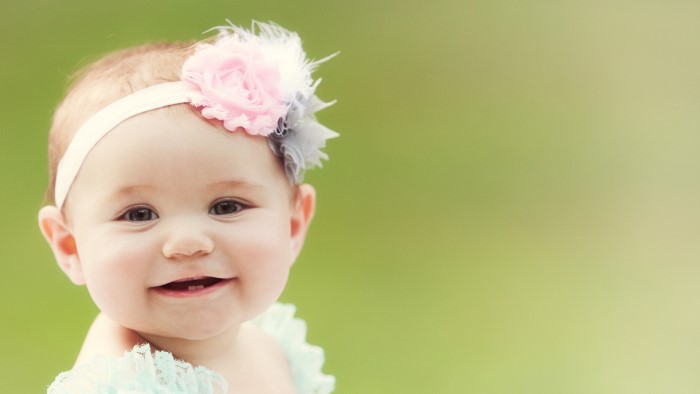


It’s a myth that your baby’s first teeth aren’t important. The truth is that baby teeth help your child with eating and learning how to talk. They also reserve space in your child’s jaws for their adult teeth.
Your child will need to see a pediatric dentist within 6 months of getting their first tooth or by age 1. But you should also take care of your child’s oral health before their first dental visit.
Baby teeth erupt through the gum between 5 and 12 months of age.
Are you ready?
It’s never too early to start caring for your child’s oral health. If your child doesn’t have teeth yet, wipe down your baby’s gums with a soft cloth at least once a day. This will help reduce the bacteria in your child’s mouth.
You can start brushing once your child gets their first tooth, between 5 and 12 months of age. The bottom two front teeth are usually the first to erupt.
Is your child younger than 3 years old? If so, you’ll want to put a tiny smear of toothpaste on their toothbrush—no more than the size of a rice grain.
A lot of parents worry about fluoride in their baby’s toothpaste. But fluoride toothpaste is safe for babies as long as you don’t exceed the recommended amount.
Always help your child avoid swallowing their toothpaste as much as possible. For babies, we recommend tilting your child’s head down a little while you brush. That way, any extra toothpaste can dribble out of their mouth into a sink, cup, or washcloth.
After your child’s third birthday, you’ll want to use a pea-sized glob of toothpaste. At this age, your child will be able to spit any excess toothpaste into the sink after brushing. But you’ll still need to brush their teeth for them and remind them to spit afterward.
Many municipalities have already added fluoride to their public drinking water. But it helps to have a little extra boost from your child’s toothpaste.
Fluoride strengthens tooth enamel over time, which reduces your child’s risk of cavities.
You’ll want to brush your child’s teeth twice a day. We recommend brushing your child’s teeth after breakfast and before bed. That way, your child won’t have dental plaque sitting on their teeth all night.
Continue brushing your child’s teeth for them until they’re able to take care of their oral hygiene on their own. This is usually around age 6 when they develop enough coordination to tie their own shoes.
It’s normal and even encouraged for your child to get used to brushing their own teeth. In fact, children as young as 18 months may try to grab the toothbrush and brush their own teeth.
While it’s fine to let your child practice, you should always follow up with proper brushing.
Dental plaque loves to hide where toothbrush bristles can’t reach. As soon as your baby’s first teeth touch each other, you should be flossing. Flossing removes plaque caught between teeth and along the gum line.
It’s important to teach your child the proper flossing technique. That way, they’re getting the most out of their oral care routine. Gently bring the floss up and under the gums following the curve of the tooth to remove any plaque.
This might feel uncomfortable at first, but your child will soon grow used to the practice.
We don’t recommend using a bottle to help your baby fall asleep. Baby bottle tooth decay happens when the enamel is exposed to sugary drinks for a long period of time. This includes milk and formula.
The bacteria that live in your baby’s mouth use sugar to produce cavity-causing acid. For this reason, many babies that sleep with bottles get cavities in their upper front teeth.
Schedule your child’s first dental appointment within 6 months of getting their first tooth or by age 1.
During your child’s first appointment with us, our goal is to help your child feel comfortable in our office. That way, they won’t feel anxious during future visits.
Your child will need a teeth cleaning and dental exam every 6 months so they can maintain a healthy smile.
A dental cleaning appointment helps us catch issues before they have a chance to worsen. We may recommend more regular cleanings if you have a family history of oral health issues.
Dr. Wanki William Kim is an experienced pediatric dentist in Grand Rapids, MI. As such, he’ll be able to help you care for your child’s growing smile. To schedule an appointment, call the Pediatric Dentistry of Michigan at (616) 447-7900.
Dental Services
Patient Resources